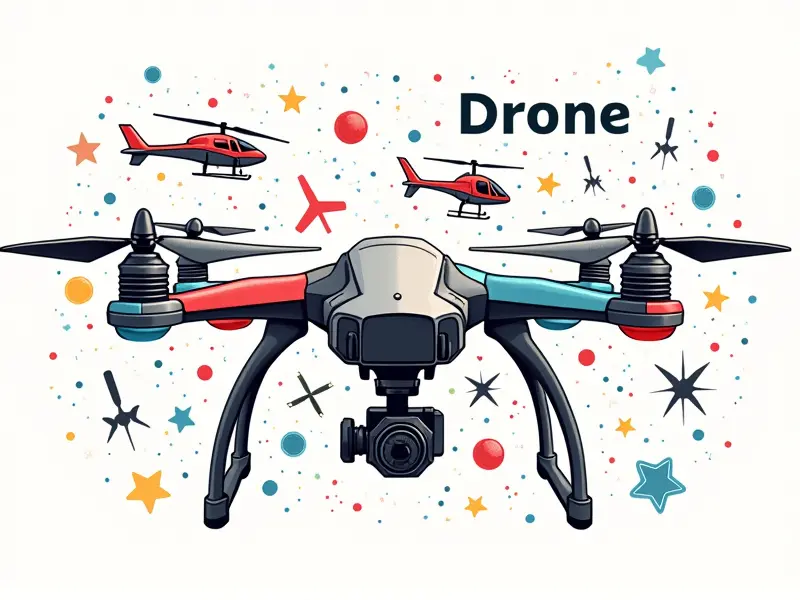What's drone GPS accuracy?

How Accurate is Drone GPS Today?
The accuracy of drone GPS systems has significantly improved over the years, but it still varies based on several factors. Modern drones typically offer an accuracy range between 1 to 5 meters for most consumer and commercial models. However, high-end professional drones can achieve sub-meter precision under optimal conditions.
Factors Affecting Drone GPS Accuracy
- Satellite Signal Strength: The number of satellites a drone locks onto affects its accuracy. More satellites provide better triangulation and thus higher precision.
- Geographical Location: Urban environments with tall buildings can obstruct satellite signals, reducing GPS accuracy compared to open areas like fields or deserts.
- Atmospheric Conditions: Weather phenomena such as solar flares or heavy cloud cover can interfere with GPS signals and degrade accuracy.
Improving Drone GPS Location Precision
To enhance the precision of drone GPS, consider these strategies:
- Use RTK/GNSS Augmentation Systems: Real-Time Kinematic (RTK) technology can improve accuracy to centimeter-level by correcting satellite signal errors.
- Employ Differential GPS: This method uses ground stations to correct for atmospheric delays and other inaccuracies, providing more precise positioning.
Common Challenges with Drone GPS
Drones face several challenges when it comes to GPS accuracy:
- Multipath Interference: Signals reflecting off buildings or terrain can cause errors in the drone's position estimation.
- Satellite Geometry: The relative positions of satellites at any given moment impact the quality and reliability of GPS data.
Enhancing GPS Performance in Drones
To optimize GPS performance, consider these tips:
- Choose High-Quality Receivers: Investing in a high-precision GPS receiver can significantly improve accuracy and reliability.
- Implement Advanced Algorithms: Utilize sophisticated algorithms to filter out noise and correct for errors, enhancing overall performance.
The Limits of Drone GPS Precision
Despite advancements in technology, there are inherent limitations to drone GPS accuracy. Factors such as signal interference from urban environments or natural obstacles can limit the precision achievable even with advanced systems.
What Influences Drone GPS Reliability?
- Signal Reception: The strength and clarity of satellite signals directly affect reliability.
- Software Quality: Robust software that can handle real-time data processing is crucial for maintaining reliable operation.
Real-World Applications of Accurate Drone GPS
The applications of accurate drone GPS are vast, including:
- Agriculture: Precision farming relies on accurate positioning to monitor crop health and optimize resource use.
- Surveying & Mapping: High-precision drones enable detailed mapping for construction projects or environmental studies.
Best Practices for Drone GPS Use
To maximize the benefits of drone GPS, follow these best practices:
- Regular Calibration: Periodically calibrate your drone's GPS to ensure optimal performance and accuracy.
- Environmental Awareness: Be mindful of environmental factors that could impact GPS signals and plan accordingly.
Future Trends in Drone GPS Tech
The future holds exciting developments for drone GPS technology, including:
- Better Signal Processing: Advanced algorithms will continue to improve signal clarity and reduce errors.
- Integration with Other Technologies: Combining GPS with other positioning systems like LiDAR or magnetic field sensors can offer even greater accuracy.
Maximizing Drone GPS Accuracy Tips
To get the most out of your drone's GPS, consider these tips:
- Upgrade to RTK/GNSS: For critical applications requiring extreme precision, upgrading to RTK or GNSS systems is highly recommended.
- Monitor Signal Quality: Regularly check the quality of satellite signals and adjust settings as needed to maintain optimal performance.
Conclusion
The accuracy of drone GPS plays a crucial role in various applications, from agriculture to surveying. By understanding the factors that influence its precision and reliability, users can take steps to enhance their drone's performance. As technology advances, we can expect even greater improvements in GPS accuracy for drones.

